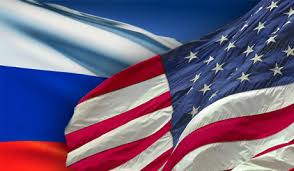Moscow on Wednesday warned that Washington’s deployment of a US missile defense system to South Korea could spark an arms race in the region.
 Moscow on Wednesday warned that Washington's deployment of a US missile defense system to South Korea could spark an arms race in the region.
Moscow on Wednesday warned that Washington's deployment of a US missile defense system to South Korea could spark an arms race in the region.
South Korean and US defense officials said last week they would begin formal talks on the deployment of the Terminal High Altitude Area Defense System (THAAD) system in response to North Korea's recent nuclear and missile tests.
"The appearance of elements of the US global missile defense system in the region - which is characterized by a very difficult security situation - can provoke an arms race in Northeast Asia and complicate the resolution of the nuclear problem on the Korean peninsula," said the Russian foreign ministry.
"On a more global scale, this step can increase the destructive influence of the US global missile defense system on international security and stability."
The foreign ministry reiterated that Pyongyang's nuclear and missile tests "could not but inspire strong condemnation" but accused Washington of using them to expand its missile defense system.
The US insists that the defense system is a deterrent necessitated by the North's advancing ballistic missile program.
China has also argued it would undermine stability in the delicately balanced region.
Pyongyang has said that the deployment of a missile defense system would be a Cold War tactic to "contain" China and Russia.
The THAAD system, in service since 2008, includes truck-mounted launchers, radars, interceptor missiles and global communications links.
Five THAAD batteries are currently operational, according to the Pentagon's Missile Defense Agency, and two more were ordered in 2014.
North Korea's rocket launch last week, widely seen as a disguised long-range missile test, sparked international fury and prompted an agreement at the UN Security Council to slap new sanctions against the increasingly defiant state.
The launch, which violated multiple UN resolutions, came just weeks after Pyongyang carried out its fourth nuclear test.